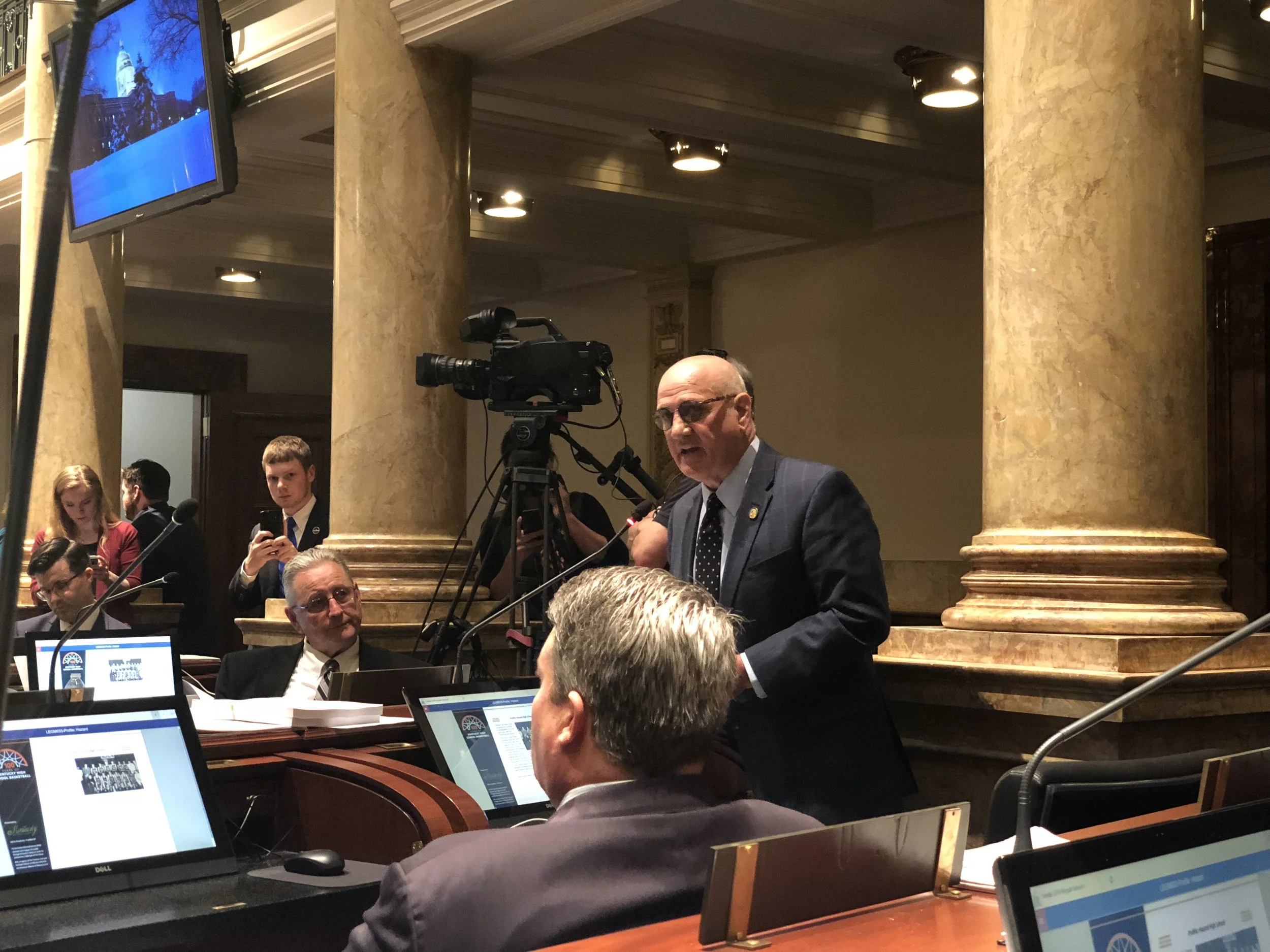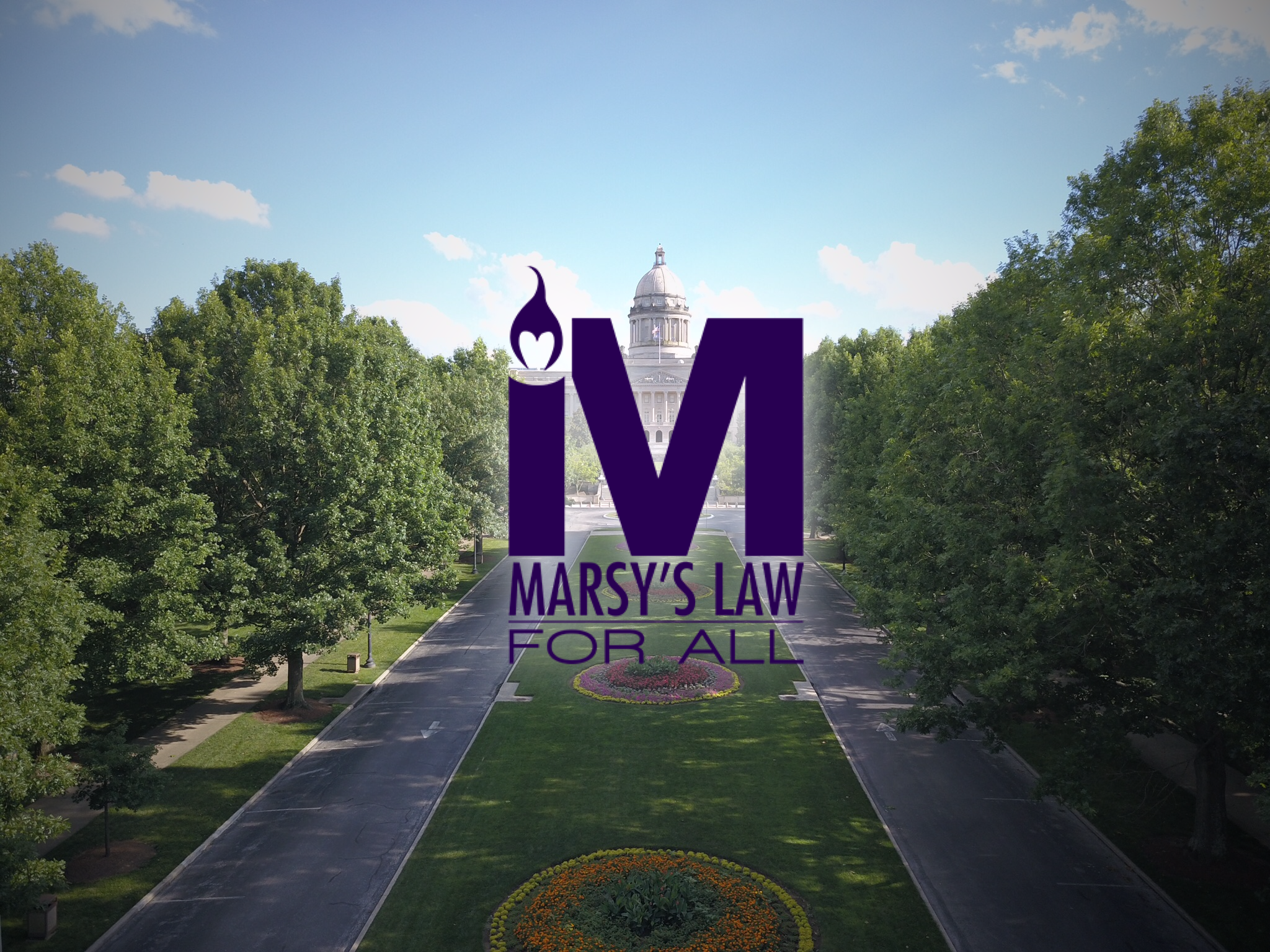I continued to hear questions from stakeholder groups, usually asking “what if” questions, the kind we often had to look outside of Kentucky to states with Marsy’s Law already on the books to answer. Dozens of drafts were written and revised. Hundreds of emails were bounced around, testing phrasing, sentence structure and calibrating the core set of victims’ rights based on case law, other states’ experiences and importantly, tailored it to fit Kentucky’s justice system. The bill was presented again to different interim committees, for questions and feedback. By the time 2017 was drawing to a close we believed we were ready for 2018, and the hope to get the bill passed this year was the greatest it had been. If we failed to pass Marsy’s Law this year, it would mean a delay of two more years before another ballot for a constitutional amendment would come around.
January 2, 2018, the first day of session, I filed SB3 and SB30, the constitutional amendment and enabling legislation, respectively. Marsy’s Law had the support of nearly two dozen co-sponsors, from the right and the left, from the east and the west, and from rural and urban legislators. We continued to meet with legislators who had questions and soon believed we had enough support to move forward. SB3 was heard in committee on January 10, where it passed unanimously. Later that same afternoon, in a strong statement of support for Marsy’s Law, Senate leadership advanced SB3 to the floor for a vote, making it the first to pass through the Senate in 2018.
The strong support did not stop there, as the House leadership promptly referred Marsy’s Law to committee and then to the floor where it passed with an overwhelming majority on January 24. A day later, the bill was officially received by the Secretary of State, its last procedural step before voters get their say in November.
Our voices, and the voices of victims and survivors across Kentucky, were heard resoundingly in Frankfort. Not only was Marsy’s Law the first bill to pass the Senate in 2018, it was the first bill to pass the House too, making a bold, bipartisan statement by the General Assembly that victims shall no longer be treated as mere witnesses to crimes, but should be recognized and granted fundamental rights to empower them and restore their dignity in a criminal justice system that for too long has ignored them!
Sponsoring Marsy’s Law, fighting for its passage and seeing it succeed, has been a highlight of my time in Frankfort. But now we begin the work to educate the voters of Kentucky. I look forward to November when we can stand shoulder to shoulder across Kentucky knowing we’ve made a lasting, historic stand for victims — giving constitutional strength to their voices for the first time.






